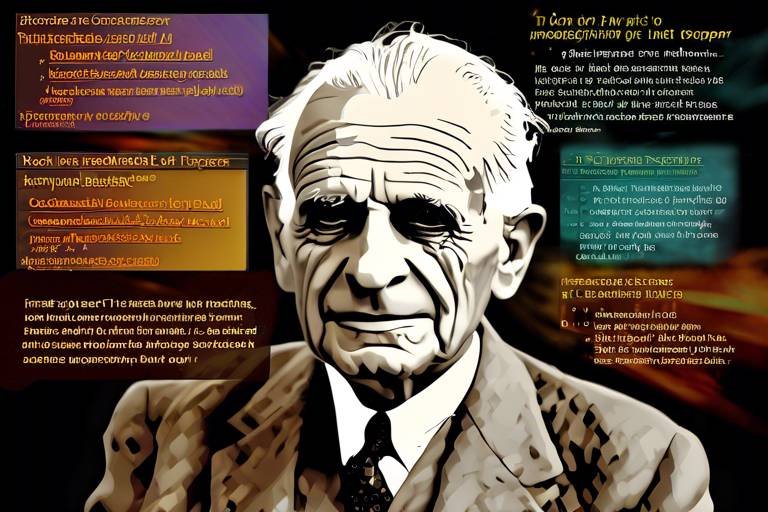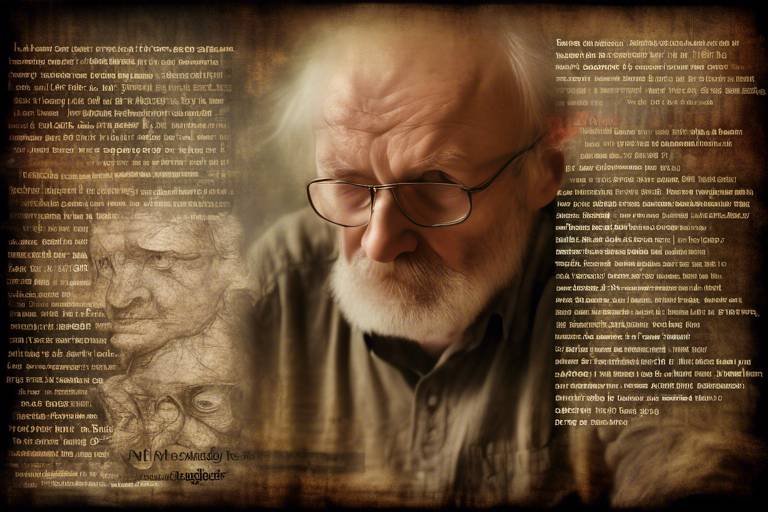The Influence of Empedocles in Ancient Greek Philosophy
Empedocles, a name that may not ring a bell for many, holds a profound significance in the realm of ancient Greek philosophy. Born in the vibrant city of Akragas (modern-day Agrigento, Sicily) around 495 BCE, this philosopher was not just a thinker but a visionary who wove together threads of metaphysics, natural science, and ethics into a rich tapestry of ideas that continue to resonate today. His contributions were not mere footnotes in the annals of history; they were the very foundation upon which later philosophical thought was built. Imagine standing on the shoulders of giants—this is precisely what later philosophers like Plato and Aristotle did, drawing inspiration from Empedocles’ insights.
What makes Empedocles particularly fascinating is his unique approach to understanding the universe. He didn’t just sit in an ivory tower contemplating existence; he actively engaged with the world around him, proposing that everything we see is a result of the interplay between four fundamental elements: earth, air, fire, and water. This idea was revolutionary, challenging the prevailing notions of the time and paving the way for future scientific inquiry. But it wasn't just about the elements; Empedocles introduced the dual forces of Love and Strife, which he believed governed the interactions between these elements. This notion not only encapsulated his view of the cosmos but also provided a framework for understanding change and transformation in the world.
As we delve deeper into Empedocles' philosophy, we uncover a rich landscape of ideas that extend beyond the physical realm. His thoughts on ethics and morality reflect a profound understanding of the interconnectedness of life, urging us to consider our responsibilities toward one another and the cosmos. In a world often fraught with division, his teachings remind us of the underlying unity that binds all existence together. Empedocles’ legacy is not confined to the dusty pages of history; it lives on, inspiring modern thinkers and scientists to explore the intricate dance of elements and forces that shape our reality.
In this article, we will embark on a journey through Empedocles' life, his core philosophical concepts, and the far-reaching implications of his thoughts. By examining his contributions, we will not only appreciate his influence on ancient Greek philosophy but also recognize how his ideas continue to echo in contemporary discussions about science, ethics, and the nature of existence. So, are you ready to explore the world of Empedocles? Let’s dive in!
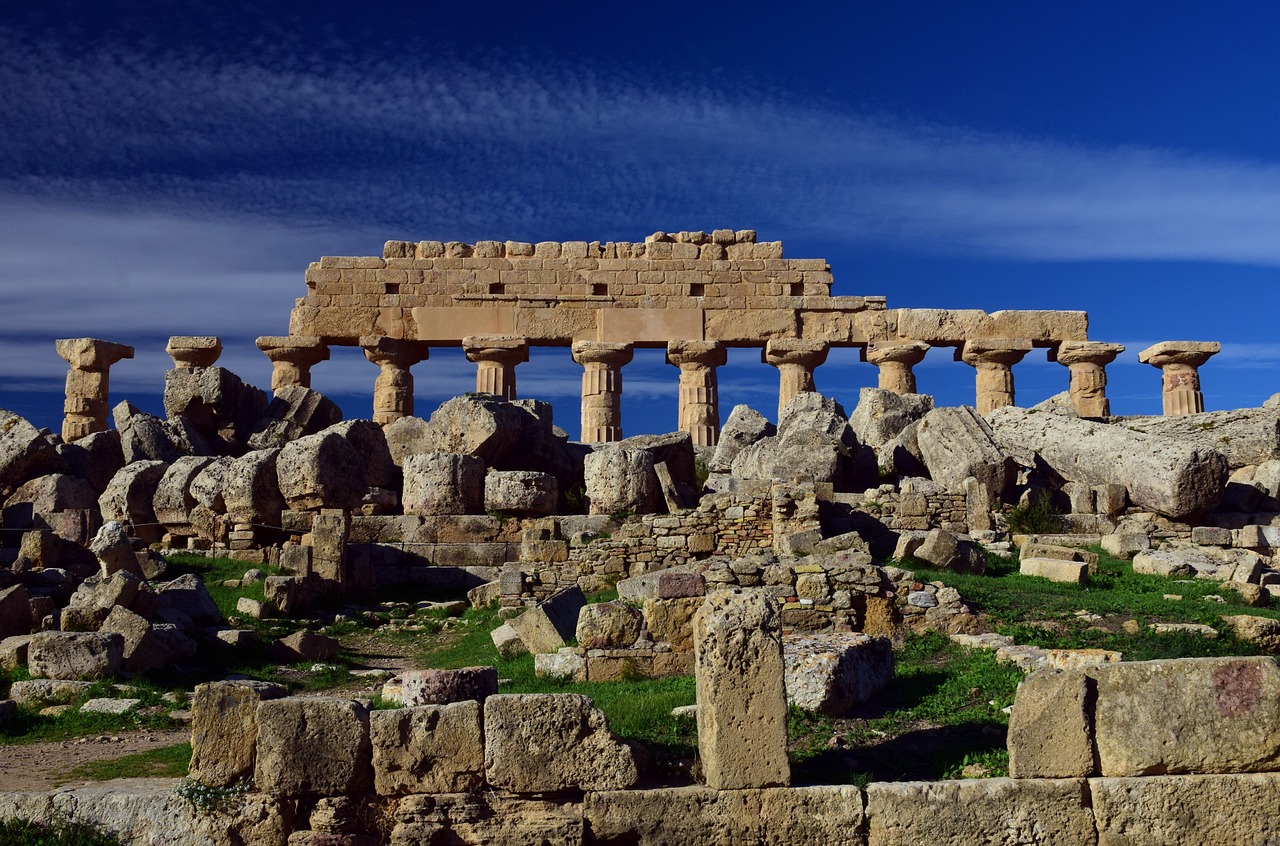
Empedocles: A Brief Biography
Empedocles was born around 495 BCE in the ancient city of Akragas, located in Sicily. He was not just a philosopher but also a polymath—someone who dabbled in various fields including science, poetry, and politics. His life was steeped in the vibrant cultural milieu of the time, which was marked by a blend of Greek thought and Eastern influences. Akragas was known for its wealth and sophistication, providing a fertile ground for Empedocles to cultivate his ideas. He belonged to a noble family, which likely afforded him a good education and the opportunity to travel, exposing him to various schools of thought.
Empedocles is best known for his major works, which include “On Nature” and “Purifications”. These texts not only delve into his philosophical musings but also reflect his poetic flair. “On Nature” presents his theories on the fundamental elements of the universe, while “Purifications” explores his views on the soul and ethics. His writings were characterized by a rich and vivid style, often employing metaphors and allegories that resonate even today. Interestingly, he is often credited with being one of the first to propose that the universe is governed by certain principles, laying the groundwork for later scientific inquiry.
Historically, Empedocles lived during a time of great intellectual upheaval. The pre-Socratic era was marked by a shift from mythological explanations of the world to rational, systematic inquiry. This transition was crucial, as thinkers like Empedocles began to explore the nature of existence and the cosmos through a more scientific lens. His thoughts were revolutionary, suggesting that all matter is composed of four essential elements: earth, air, fire, and water. This idea not only influenced his contemporaries but also laid the foundation for later philosophical and scientific developments.
Empedocles was not merely a thinker confined to the ivory tower; he was also actively involved in the political life of Akragas. He is said to have participated in the political affairs of his city, advocating for democratic ideals and social reform. His commitment to public life reflects a deep understanding of the interconnectedness of all things, a theme that permeates his philosophical works. In fact, he viewed himself as a healer, not just of individuals but of society as a whole, which underscores his holistic approach to life and knowledge.
Despite his significant contributions, much of Empedocles' life remains shrouded in mystery. He is said to have died under dramatic circumstances—either by throwing himself into the volcano Mount Etna or by disappearing into the sea. This enigmatic end adds an almost mythical quality to his legacy, making him a figure of intrigue in the annals of philosophy. His ideas would later influence a multitude of thinkers, including Plato and Aristotle, cementing his place in the pantheon of great philosophers. As we delve deeper into his core philosophical concepts, it becomes evident that Empedocles' thoughts continue to resonate, echoing through the corridors of time.

Core Philosophical Concepts
Empedocles was not just a thinker; he was a revolutionary mind who dared to explore the very fabric of existence. His philosophical concepts, particularly the theory of the four elements and the dual forces of Love and Strife, are pivotal in understanding not just ancient thought, but also the foundations of modern philosophy and science. Imagine a world where everything is interconnected, where the air you breathe, the water you drink, the earth beneath your feet, and the fire that warms you are all part of a grand cosmic dance. This is the essence of Empedocles' worldview—a view that transcends time and continues to resonate in contemporary discussions about existence and the universe.
At the heart of Empedocles' philosophy lies his assertion that all matter is composed of four fundamental elements: earth, air, fire, and water. This groundbreaking idea was not merely a scientific hypothesis; it was a profound metaphysical statement about the nature of reality. Each element represented a different aspect of existence, and together they formed the basis of everything we see around us. Picture these elements as the building blocks of life, each playing a crucial role in the symphony of the universe. This elemental theory laid the groundwork for later scientific inquiry, influencing thinkers like Aristotle, who expanded upon these ideas in his own philosophical explorations.
The implications of Empedocles' elemental theory were far-reaching. By proposing that all matter could be reduced to these four elements, he challenged the prevailing notions of his time and opened the door to a new way of thinking about the natural world. This shift in perspective was monumental, as it encouraged a more systematic approach to understanding nature, leading to what we now call natural philosophy. Imagine the excitement of early scientists and philosophers as they began to explore the relationships between these elements, paving the way for the scientific method and empirical inquiry that would dominate the Renaissance and beyond.
Fast forward to today, and we can see echoes of Empedocles' ideas in modern science. While our understanding of matter has evolved significantly, the core concept of elements remains relevant. In chemistry, for example, we still refer to fundamental substances that combine in various ways to create the world around us. Moreover, in physics, the idea of elemental particles resonates with Empedocles' framework. Just as he viewed the four elements as the basis of all matter, contemporary scientists examine the relationships between particles to understand the universe. It's fascinating to think that a philosopher from ancient Greece could lay the groundwork for concepts that would eventually lead to modern scientific discoveries.
But what about the forces that govern these elements? Empedocles introduced the dual forces of Love and Strife, which he believed were responsible for the interactions and transformations of the elements. Love represents the force of unity and harmony, bringing elements together to create life and beauty. In contrast, Strife symbolizes division and conflict, causing elements to separate and dissolve. This dynamic interplay between Love and Strife can be likened to the balance of yin and yang—a constant dance of creation and destruction that shapes our existence. Empedocles' view of these forces not only provides insight into the nature of the universe but also reflects the complexities of human relationships and ethical dilemmas.
In conclusion, Empedocles' core philosophical concepts are not just relics of the past; they are vibrant ideas that continue to influence how we think about the world today. His theories of the four elements and the forces of Love and Strife offer a unique lens through which we can explore not only the physical universe but also the moral and ethical dimensions of our lives. As we navigate our own existence, we can draw inspiration from Empedocles, recognizing the interconnectedness of all things and the delicate balance between creation and destruction.

The Four Elements
Empedocles, a pivotal figure in ancient Greek philosophy, introduced a revolutionary concept that all matter is composed of four fundamental elements: earth, air, fire, and water. This notion was not just a simple classification; it was a profound way of understanding the universe and our place within it. Imagine the world as a grand symphony, where each element plays a unique note, contributing to the harmony of existence. Empedocles believed that these elements were the building blocks of everything we see around us, from the smallest pebble to the mightiest mountain.
His theory suggested that these four elements are in a constant state of interaction, influenced by two opposing forces he termed Love and Strife. Love represents the force of attraction, bringing elements together to create unity and harmony, while Strife symbolizes separation and division. This dynamic interplay between Love and Strife is akin to the ebb and flow of the tides, where the gravitational pull of the moon (Love) causes the water to rise, and the subsequent retreat (Strife) creates space for the land to breathe. In this way, Empedocles provided a framework for understanding not only physical matter but also the processes of change and transformation that govern our world.
To better illustrate the significance of these elements, consider the following table that summarizes their characteristics and roles:
| Element | Characteristics | Symbolism |
|---|---|---|
| Earth | Solid, stable, and nurturing | Foundation of life |
| Air | Invisible, essential for breathing | Freedom and movement |
| Fire | Transformative, energetic, and passionate | Change and vitality |
| Water | Fluid, adaptable, and life-sustaining | Emotion and intuition |
This elemental theory was groundbreaking and laid the foundation for various fields of study, including chemistry and physics. Empedocles' ideas were not merely philosophical musings; they sparked a shift in the way people began to think about the natural world. His assertion that everything is composed of these four elements encouraged a more systematic approach to understanding the universe, leading to a more empirical method of inquiry that would be further developed by later philosophers and scientists.
Moreover, the idea of the four elements influenced not only the scientific community but also the arts and literature of the time. Poets and playwrights began to incorporate these elemental themes into their works, using them as metaphors for human emotions and experiences. Just as the elements interact to form the physical world, so too do our feelings and relationships shape our lives.
In conclusion, Empedocles' theory of the four elements is a testament to his innovative thinking and profound impact on both philosophy and science. His work invites us to ponder the very fabric of existence and reminds us that everything is interconnected. Just as each element has its place in the grand tapestry of life, so too do we, as individuals, contribute to the universe's ongoing story.

Impact on Natural Philosophy
Empedocles' revolutionary ideas about the four elements fundamentally altered the landscape of natural philosophy in ancient Greece. By proposing that everything in the universe is composed of earth, air, fire, and water, he provided a framework that encouraged future philosophers and scientists to explore the nature of existence more deeply. This elemental theory not only challenged the prevailing notions of his time but also paved the way for a more systematic approach to understanding the natural world.
One of the most significant impacts of Empedocles on natural philosophy was his influence on later thinkers, particularly Aristotle. Aristotle adopted and modified Empedocles' ideas, integrating them into his own theories of matter and change. He saw the four elements as the basis for all substances and introduced the concept of qualities associated with each element, such as hot, cold, wet, and dry. This synthesis of ideas marked a critical shift in how philosophers approached the study of nature, leading to a more empirical and observational methodology.
Moreover, Empedocles' notion that the elements could combine and separate under the forces of Love and Strife introduced an early understanding of chemical interactions. This dualistic view provided a metaphorical lens through which to examine the processes of creation and destruction in the universe. The idea that these elemental forces govern the interactions of matter was a precursor to modern theories of chemical reactions, illustrating how ancient thought can resonate with contemporary scientific principles.
To illustrate this connection between Empedocles' ideas and later developments in natural philosophy, we can look at a simple comparison of key concepts:
| Empedocles' Concept | Influence on Later Thinkers | Modern Relevance |
|---|---|---|
| Four Elements | Adopted by Aristotle in his theory of matter | Foundational to the development of chemistry |
| Love and Strife | Influenced metaphysical discussions on dualism | Similar to concepts of attraction and repulsion in physics |
| Cyclical Nature of Change | Inspired later philosophical discussions on existence | Resonates with modern theories of conservation in science |
In summary, Empedocles' contributions to natural philosophy cannot be overstated. His elemental theory not only set the stage for future philosophical inquiry but also laid the groundwork for the scientific methods that would emerge in the centuries that followed. By establishing a dialogue between the forces of nature and the elements, he invited subsequent scholars to explore the intricacies of the universe in ways that were both profound and transformative.
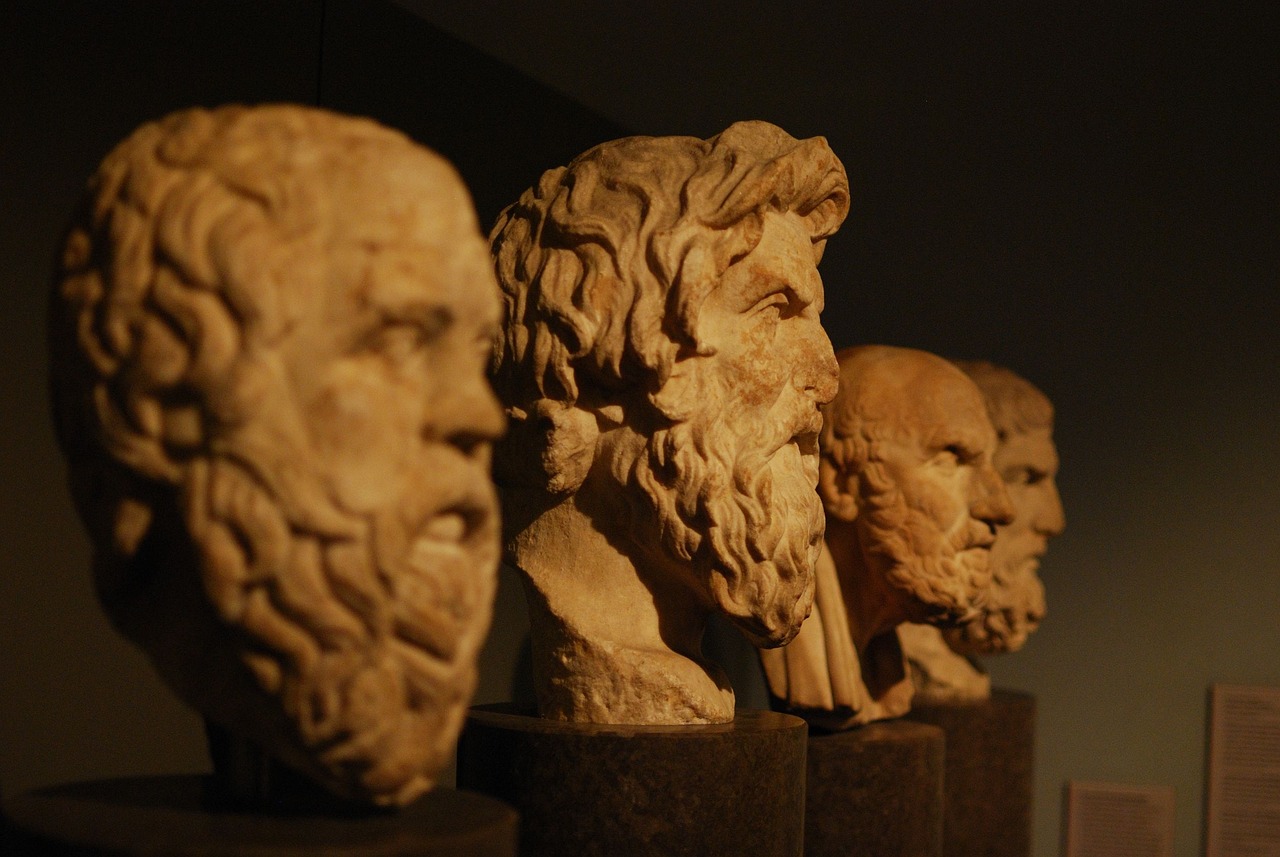
Relation to Modern Science
When we think about the origins of scientific thought, it's hard not to tip our hats to ancient philosophers like Empedocles. His groundbreaking ideas about the four elements—earth, air, fire, and water—were not just musings of a curious mind; they laid the groundwork for what would eventually evolve into modern scientific theories. Imagine a time when the world was shrouded in mystery, and the elements were seen as the building blocks of everything around us. Empedocles was one of the first to propose that all matter is made up of these four fundamental components, and this notion has echoed through the ages.
Fast forward to today, and we see that Empedocles’ elemental theory resonates with contemporary scientific concepts, particularly in the fields of chemistry and physics. For instance, while modern science has expanded our understanding of matter to include atoms and molecules, the basic idea that everything is composed of fundamental building blocks can be traced back to Empedocles. His assertion that these elements interact and transform under certain conditions mirrors how we understand chemical reactions today.
To illustrate the connection between Empedocles' ideas and modern science, consider the following table:
| Empedocles' Elements | Modern Scientific Concepts |
|---|---|
| Earth | Solids (e.g., minerals, metals) |
| Air | Gases (e.g., oxygen, nitrogen) |
| Fire | Energy (e.g., heat, light) |
| Water | Liquids (e.g., H2O, solutions) |
This table highlights how Empedocles' four elements can be seen as a precursor to our modern understanding of matter and its states. Each of these elements corresponds to the states of matter we study in chemistry today. Just as Empedocles believed these elements could combine and separate, modern chemistry explores how atoms bond to form molecules and compounds, showcasing the dynamic nature of matter.
Moreover, the relevance of Empedocles' ideas extends beyond just the physical sciences. His elemental framework also touches on the holistic view of nature that is gaining traction in contemporary scientific discourse. In fields like ecology and systems biology, the interactions between different elements—be they biological, chemical, or physical—are seen as essential to understanding complex systems. This interconnectedness mirrors Empedocles' belief in the unity and interaction of the four elements, suggesting that his philosophical insights have not only stood the test of time but continue to inspire modern scientific inquiry.
In summary, the relationship between Empedocles' theories and modern science is profound and multifaceted. His pioneering thoughts on the nature of matter and the forces that govern its interactions have laid a foundation that resonates with contemporary scientific principles. As we delve deeper into the mysteries of the universe, we can appreciate how the echoes of Empedocles' ideas continue to shape our understanding of the world around us.
- Who was Empedocles? Empedocles was a pre-Socratic philosopher from ancient Greece known for his contributions to metaphysics, natural science, and ethics.
- What are the four elements according to Empedocles? Empedocles proposed that all matter is composed of four fundamental elements: earth, air, fire, and water.
- How did Empedocles influence modern science? His elemental theory laid the groundwork for later scientific inquiry, influencing figures like Aristotle and shaping our understanding of matter in chemistry and physics.
- What are the forces of Love and Strife? These are the dual forces in Empedocles' philosophy that govern the interactions and transformations of the elements, symbolizing unity and division.

Love and Strife
In the rich tapestry of Empedocles' philosophy, the dual forces of Love and Strife emerge as fundamental principles that govern the universe's dynamics. These two forces are not merely abstract ideas; they represent the driving energies behind the creation and destruction of all things. Imagine a cosmic dance where Love acts as the unifying force, drawing elements together, while Strife serves as the catalyst for separation and conflict. This interplay creates a balance that is essential for the ongoing transformation of matter and life.
Empedocles posited that everything in the universe is in a constant state of flux, influenced by these opposing forces. Love, or Philia, brings harmony and cohesion, allowing elements to combine and form new entities. On the other hand, Strife, or Neikos, introduces discord and division, leading to the disintegration of these formed entities. This cyclical process of attraction and repulsion is akin to the ebb and flow of tides, where the moon's gravitational pull creates a rhythm that is both beautiful and destructive.
To better understand how Love and Strife function in Empedocles' framework, consider the following table that highlights their characteristics:
| Force | Characteristics | Role in the Universe |
|---|---|---|
| Love (Philia) | Unity, Attraction, Cohesion | Brings elements together to create harmony and new forms |
| Strife (Neikos) | Division, Conflict, Separation | Causes disintegration and conflict, leading to new transformations |
This dualistic view of existence not only informs Empedocles' metaphysical ideas but also extends to his ethical considerations. He believed that human actions are influenced by these forces, suggesting that individuals possess the power to choose between Love and Strife in their interactions with others and the world. This notion of moral responsibility resonates with the idea that our choices can either foster unity and understanding or lead to discord and division.
Furthermore, Empedocles' emphasis on these forces draws parallels to modern concepts in psychology and sociology, where the balance between cooperation and competition is essential for societal growth and harmony. Just as Empedocles viewed Love and Strife as necessary for the cosmos, contemporary thinkers recognize the importance of these dynamics in shaping human relationships and communities. In essence, understanding the interplay of Love and Strife provides profound insights into not only the natural world but also our ethical obligations as individuals within a larger societal framework.
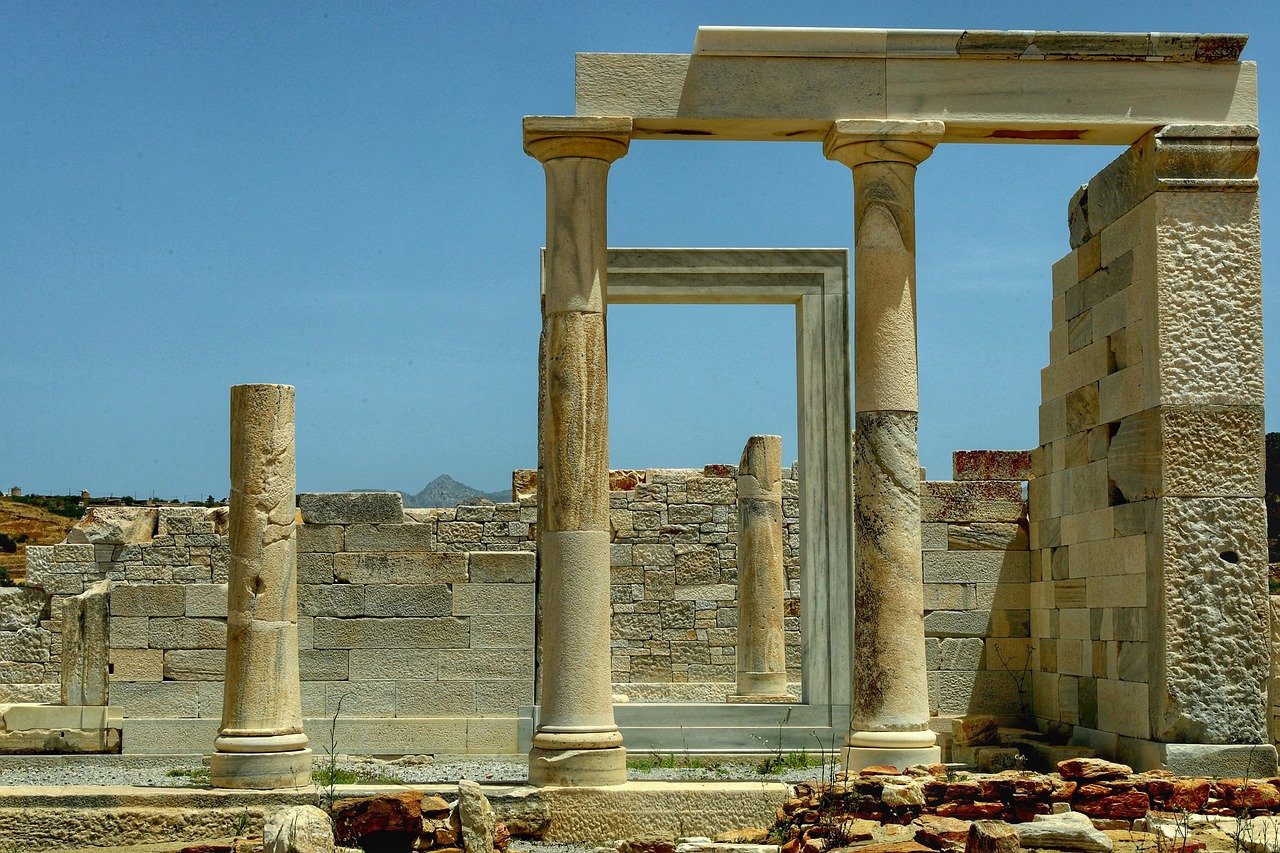
Ethical Implications of His Philosophy
Empedocles' philosophy is not just a collection of abstract ideas; it carries profound ethical implications that resonate even today. At the heart of his thought is the concept of interconnectedness, which suggests that all living beings are part of a larger cosmic cycle. This idea leads us to ponder our responsibilities toward one another and the environment. Imagine a vast web where every thread is connected; pulling on one affects all the others. This metaphor beautifully captures Empedocles' view of existence and ethics.
One of the most intriguing aspects of Empedocles' ethical framework is his belief in the immortality of the soul. He posited that the soul undergoes a cycle of reincarnation, moving from one form of life to another. This belief not only emphasizes the continuity of existence but also implies that our actions in this life have repercussions in the next. In essence, Empedocles invites us to consider the moral weight of our choices. If our soul is destined to inhabit various forms, shouldn’t we act with compassion and respect towards all living beings? This notion of ethical responsibility extends beyond mere human interactions; it encompasses our relationship with nature and the universe.
Moreover, Empedocles introduced the dual forces of Love and Strife, which he believed governed the interactions of the elements and, by extension, all living things. Love represents unity, harmony, and connection, while Strife embodies division, conflict, and separation. In this light, ethical behavior can be seen as a conscious choice between these two forces. When we choose love—be it in our relationships, our communities, or our treatment of the environment—we contribute to the harmony of the universe. Conversely, when we succumb to strife, we disrupt the balance and create disharmony.
This dichotomy raises some fascinating questions about human nature and our inherent tendencies. Are we naturally inclined towards love, or is it a choice we must actively make? Empedocles suggests that understanding our place in the cosmic order can guide us towards ethical living. By recognizing our interconnectedness, we can cultivate empathy and compassion, ultimately leading to a more harmonious existence.
In addition to these philosophical insights, Empedocles’ ideas have implications for contemporary ethical debates. For instance, his views on the interconnectedness of life resonate with modern environmental ethics, which emphasize the importance of sustainability and respect for all forms of life. In a world grappling with climate change and ecological degradation, Empedocles’ call for harmony and balance serves as a timely reminder of our collective responsibility.
To summarize, the ethical implications of Empedocles' philosophy are profound and multifaceted. They encourage us to reflect on our actions, understand our interconnectedness, and embrace our moral responsibilities towards others and the environment. His ideas challenge us to choose love over strife, fostering a more compassionate and harmonious world.
- What is the significance of Empedocles' concept of the soul?
Empedocles believed the soul is immortal and part of a cosmic cycle, emphasizing the importance of our actions as they affect future incarnations. - How does Empedocles' philosophy relate to modern environmental ethics?
His ideas on interconnectedness and harmony resonate with contemporary movements that advocate for sustainability and respect for all life forms. - What are the forces of Love and Strife?
These forces represent the dual aspects of existence, where Love symbolizes unity and harmony, while Strife signifies division and conflict. - How can Empedocles' philosophy influence our daily lives?
By promoting compassion and ethical responsibility, his philosophy encourages us to make choices that foster harmony in our relationships and interactions with nature.

Views on the Soul
Empedocles held a fascinating perspective on the soul, viewing it as an immortal essence that transcends the physical realm. He believed that the soul is not just a fleeting spark of life but rather an integral part of a larger cosmic cycle. This notion of the soul's immortality is deeply intertwined with his understanding of existence, where he posited that all living beings are interconnected through a web of life and death. Imagine the soul as a traveler on an endless journey, moving through various forms and experiences, learning and evolving with each incarnation.
Central to Empedocles' philosophy is the idea of reincarnation. He suggested that the soul undergoes a continuous cycle of birth, death, and rebirth, which is influenced by the moral choices made during each lifetime. This cyclical view of existence implies that every action we take has consequences that ripple through time, shaping not only our current life but also our future incarnations. In this sense, one's ethical conduct is paramount, as it determines the quality of the next life. If you think about it, it’s like a video game where your choices impact your character's development and abilities in subsequent levels.
Empedocles also emphasized the moral responsibilities that stem from this interconnectedness. He believed that recognizing the unity of all life forms compels individuals to act with compassion and respect towards others. This ethical dimension of his philosophy can be summarized in a few key points:
- Interconnectedness: Every soul is linked to every other, creating a vast network of existence.
- Responsibility: Our actions not only affect us but also resonate through the lives of others.
- Moral Growth: Each life presents opportunities for learning and ethical development.
Through this lens, Empedocles encourages us to reflect on our choices and their implications. He invites us to consider how we can live in harmony with the world around us, fostering a sense of community and shared responsibility. His thoughts on the soul resonate with the idea that we are all part of a grand tapestry of existence, each thread contributing to the overall picture.
In conclusion, Empedocles' views on the soul are not just philosophical musings; they serve as a profound reminder of our interconnectedness and the ethical implications of our existence. By understanding the soul as part of a larger cosmic cycle, we are urged to live with intention, compassion, and awareness of the impact of our actions on the world. This timeless message continues to inspire and challenge us to think deeply about our place in the universe.
1. What did Empedocles believe about the soul?
Empedocles believed that the soul is immortal and part of a continuous cycle of birth, death, and rebirth, emphasizing the interconnectedness of all life.
2. How does Empedocles' view of the soul relate to ethics?
His view underscores the importance of moral responsibility, suggesting that our actions affect not only our current lives but also our future incarnations.
3. Did Empedocles influence later philosophers?
Yes, his ideas on the soul and interconnectedness significantly impacted later philosophers, including Plato and Aristotle, shaping Western philosophical thought.
4. What is the significance of reincarnation in Empedocles' philosophy?
Reincarnation is central to his philosophy, as it reflects the idea that the soul learns and evolves through different experiences across multiple lifetimes.
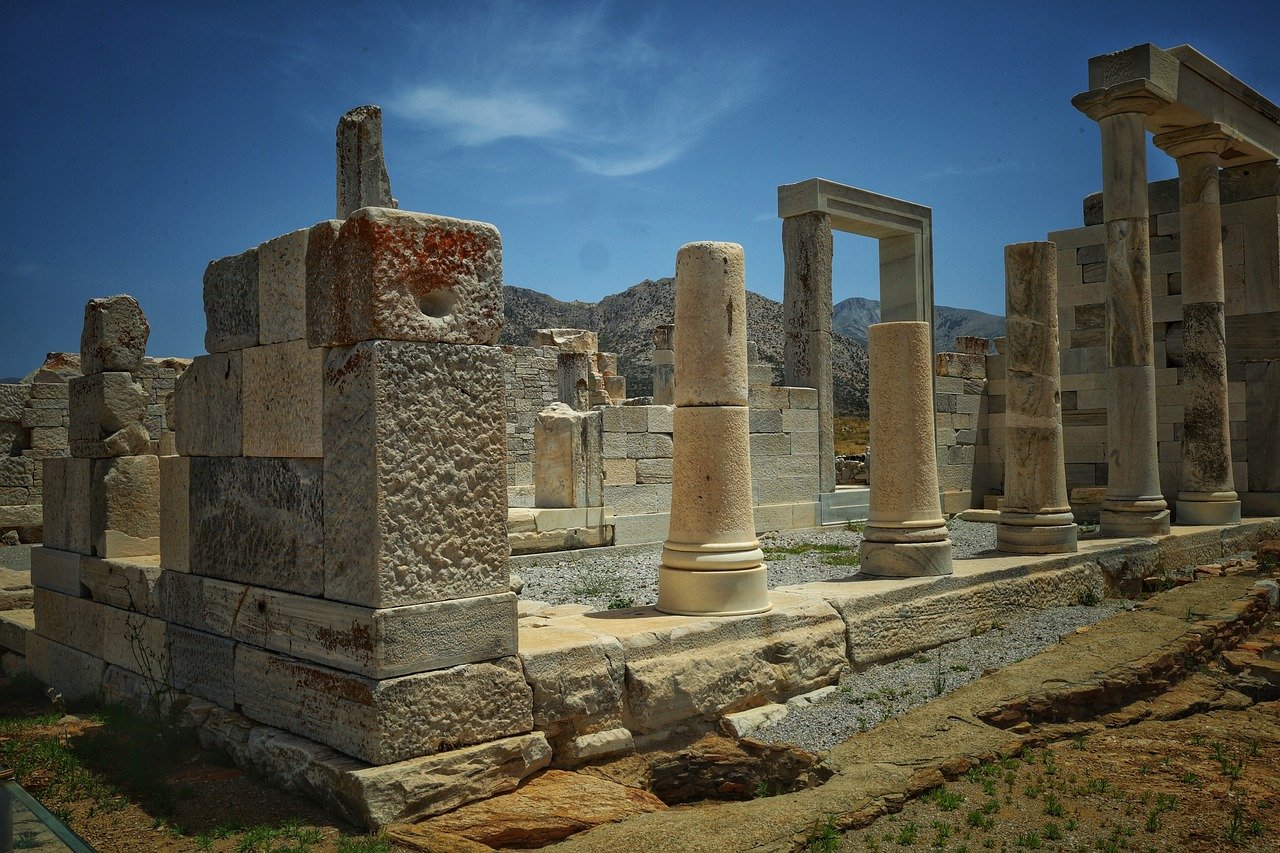
Influence on Later Philosophers
Empedocles, the ancient Greek thinker whose ideas danced between metaphysics and ethics, left a profound mark on the tapestry of Western philosophy. His thoughts on the four elements and the dual forces of Love and Strife didn’t just fade into the background; instead, they became the stepping stones for later philosophers to build upon. Imagine a grand relay race, where each philosopher takes the baton of Empedocles’ insights and runs with them, adding their unique twists and interpretations. This is precisely what happened in the philosophical arena.
One of the most notable figures to carry forward Empedocles’ legacy was Plato. In his dialogues, Plato echoed the notion of the four elements, integrating them into his own theories of forms and the physical world. He saw Empedocles’ ideas as a means to explore the nature of reality, suggesting that the elements were not merely physical substances but also represented deeper truths about existence. Plato’s concept of the ideal forms can be seen as a philosophical evolution stemming from Empedocles’ elemental theory.
Then comes Aristotle, who took Empedocles’ elemental framework and infused it with his own empirical observations. Aristotle critiqued and expanded upon the idea of the four elements, proposing that they were not just static entities but could transform into one another through a process he termed “substantial change.” This transformation of elements laid the groundwork for what would eventually evolve into modern scientific thought, showcasing how Empedocles’ influence rippled through the ages, encouraging a more dynamic understanding of nature.
Furthermore, the ethical dimensions of Empedocles’ philosophy also resonated with later thinkers. His belief in the interconnectedness of all life and the moral implications of one’s actions found a receptive audience in philosophers such as Plotinus, who integrated these ideas into his own theories of the soul and the cosmos. Plotinus’ emphasis on the unity of existence reflects Empedocles’ notion of Love as a binding force, showcasing how deeply intertwined their thoughts were.
Even in the realm of Stoicism, Empedocles’ ideas about the universe and the moral responsibilities of individuals found a home. Stoic philosophers adopted his views on the interconnectedness of all beings, advocating for a life in harmony with nature, which echoes Empedocles’ teachings. The Stoics emphasized virtue and rationality, principles that can be traced back to the ethical implications of Empedocles’ philosophy.
In summary, the influence of Empedocles on later philosophers is not just a footnote in history; it’s a vibrant thread woven into the philosophical fabric of Western thought. His ideas served as both a foundation and a catalyst for subsequent philosophical developments, demonstrating that the echoes of his insights continue to resonate through time. As we explore the thoughts of philosophers who came after him, it becomes clear that Empedocles was not merely a thinker of his time but a timeless beacon guiding the evolution of philosophical inquiry.
- Who was Empedocles? Empedocles was a pre-Socratic philosopher known for his contributions to metaphysics, natural science, and ethics, particularly through his theories of the four elements and the forces of Love and Strife.
- What are the four elements according to Empedocles? Empedocles proposed that all matter is composed of four fundamental elements: earth, air, fire, and water.
- How did Empedocles influence later philosophers? His ideas on the four elements and ethical interconnectedness were foundational for later thinkers like Plato and Aristotle, shaping their metaphysical and ethical theories.
- What is the significance of Love and Strife in Empedocles' philosophy? Love and Strife are seen as the dual forces that govern the interactions and transformations of the elements, providing insight into the nature of existence and change.
Frequently Asked Questions
- Who was Empedocles?
Empedocles was a pre-Socratic philosopher from ancient Greece, known for his contributions to metaphysics, natural science, and ethics. He lived in the 5th century BCE and is best remembered for his theory of the four elements and the dual forces of Love and Strife.
- What are the four elements according to Empedocles?
Empedocles proposed that all matter is composed of four fundamental elements: earth, air, fire, and water. He believed these elements interact through the forces of Love, which brings them together, and Strife, which separates them.
- How did Empedocles influence later philosophers?
Empedocles' ideas significantly influenced later thinkers, including Plato and Aristotle. His concepts of the four elements and the dual forces of Love and Strife helped shape metaphysical and ethical theories in Western philosophy, laying groundwork for future philosophical inquiry.
- What is the significance of Love and Strife in Empedocles' philosophy?
In Empedocles' thought, Love and Strife are essential forces that govern the interactions and transformations of the four elements. Love represents unity and harmony, while Strife signifies division and conflict, illustrating the dynamic nature of existence.
- Did Empedocles have any views on the soul?
Yes! Empedocles believed in the immortality of the soul and its connection to a larger cosmic cycle. He proposed the idea of reincarnation, suggesting that one's actions have moral implications that affect the soul's journey.
- How do Empedocles' ideas relate to modern science?
Empedocles' elemental framework resonates with modern theories in chemistry and physics, as it foreshadowed contemporary understandings of matter. His work laid the groundwork for natural philosophy, influencing scientific inquiry in ancient Greece and beyond.
- What are some major works of Empedocles?
Empedocles is primarily known for two major works: “On Nature” and “Purifications”. These texts explore his philosophical ideas, including his theories on the elements, the soul, and ethical considerations regarding life and existence.















